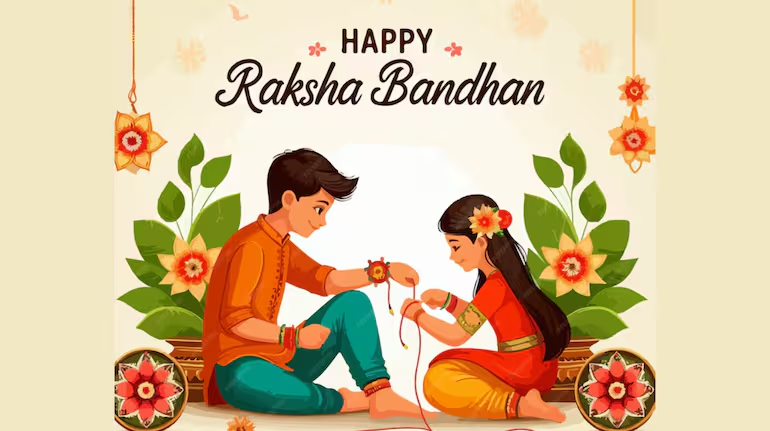
Raksha Bandhan, the festival celebrating the sacred bond between brothers and sisters, holds a significant place in Mewar's cultural and historical narrative. This festival, steeped in tradition, is observed with deep reverence across the towns and villages of Mewar, where it carries not only familial but also historical significance.
One of the most celebrated stories associated with Raksha Bandhan in Mewar involves the Mughal Emperor Humayun and Rani Karnavati of Chittorgarh, a tale that has become legendary in the annals of history. Facing an imminent threat from Bahadur Shah of Gujarat, Rani Karnavati, the widow of Rana Sanga, sent a rakhi to Emperor Humayun, seeking his protection. Despite the political complexities of the time, Humayun, moved by this gesture, set aside his differences and marched to Chittorgarh to defend her honor. Although he arrived too late to save the fort from being captured, the story symbolizes the deep respect for the rakhi, transcending religious and political boundaries.
In Mewar, Raksha Bandhan is not just a familial celebration but also a reminder of these historical bonds and the valor associated with protecting one’s kin. The festival is marked by traditional rituals, where sisters perform aarti and tie rakhis around their brothers' wrists, praying for their protection and well-being. In return, brothers pledge to safeguard their sisters, echoing the sentiments of ancient Mewar rulers who defended their lands and families with unparalleled courage.
The royal families of Udaipur, descendants of the Sisodia dynasty, continue to uphold the grandeur of Raksha Bandhan. The celebrations at the City Palace in Udaipur are a sight to behold, where the traditions of the past are preserved and celebrated with the same vigor. The Maharana’s palace becomes the heart of the festivities, where royal siblings partake in the rituals, emphasizing the festival's role in preserving familial and cultural ties.
Mewar’s temples, particularly Eklingji and Shrinathji, hold special significance during Raksha Bandhan. These temples, which have been pillars of Mewar’s spiritual life, witness a surge of devotees who come to seek blessings for their brothers. Sisters offer prayers and tie rakhis to the deities, a tradition that symbolizes divine protection and guidance.
The influence of Raksha Bandhan in Mewar extends beyond just royal and religious circles. The local Rajput communities, known for their martial heritage, observe the festival with a sense of pride and honor. The markets of Udaipur, Chittorgarh, and other towns come alive with vibrant rakhis, many crafted by local artisans who continue Mewar’s rich tradition of handicrafts.
In modern times, the festival has embraced broader social significance, with events organized by social organizations in Udaipur, where rakhis are tied to soldiers, police officers, and other protectors of society. This modern adaptation reflects the evolving nature of the festival, while still maintaining its core values of love, protection, and unity.
Raksha Bandhan in Mewar, with its blend of history, tradition, and contemporary relevance, stands as a testament to the enduring cultural legacy of the region. It is a celebration that honors not only the bonds of family but also the historical ties that have shaped Mewar’s identity over the centuries.